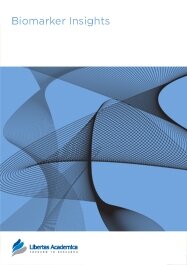

Publication Date: 27 Nov 2009
Type: Original Research
Journal: Biomarker Insights
Citation: Biomarker Insights 2009:2 181-190

Aim: To assess serum Hepatocyte Growth Factor (HGF) levels in autistic children with severe gastrointestinal (GI) disease and to test the hypothesis that there is a relationship between GI pathology and HGF concentration.
Subjects and Methods: Serum from 29 autistic children with chronic digestive disease (symptoms for a minimum of 6–12 months), most with ileo-colonic lymphoid nodular hyperplasia (LNH—markedly enlarged lymphoid nodules) and inflammation of the colorectum, small bowel and/or stomach), and 31 controls (11 age matched autistic children with no GI disease, 11 age matched non autistic children without GI disease and 9 age matched non autistic children with GI disease) were tested for HGF using ELISAs. HGF concentration of autistic children with GI disease was compared to GI disease severity.
Results: Autistic children with GI disease had significantly lower serum levels of HGF compared to controls (autistic without GI disease; p = 0.0005, non autistic with no GI disease; p = 0.0001, and non autistic with GI disease; p = 0.001). Collectively, all autistic children had significantly lower HGF levels when compared to non autistic children (p < 0.0001). We did not find any relationship between severity of GI disease and HGF concentration in autistic children with GI disease.
Discussion: These results suggest an association between HGF serum levels and the presence of GI disease in autistic children and explain a potential functional connection between the Met gene and autism. The concentration of serum HGF may be a useful biomarker for autistic children, especially those with severe GI disease.
PDF (643.93 KB PDF FORMAT)
RIS citation (ENDNOTE, REFERENCE MANAGER, PROCITE, REFWORKS)
BibTex citation (BIBDESK, LATEX)
XML
PMC HTML


I have had a great experience with submitting my cancer prognosis study to Biomarker Insights. The comments from reviewers and associate editor are high quality and insightful. Congratulations and keep up the good work.

All authors are surveyed after their articles are published. Authors are asked to rate their experience in a variety of areas, and their responses help us to monitor our performance. Presented here are their responses in some key areas. No 'poor' or 'very poor' responses were received; these are represented in the 'other' category.See Our Results
Copyright © 2013 Libertas Academica Ltd (except open access articles and accompanying metadata and supplementary files.)
Facebook Google+ Twitter
Pinterest Tumblr YouTube